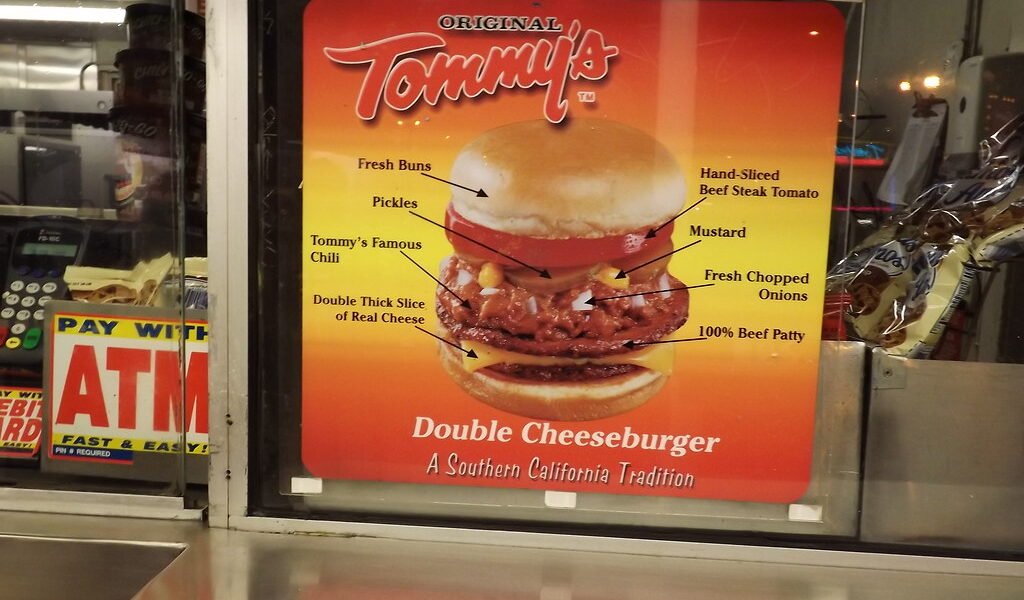Fast food and healthcare workers in the Golden State are set to experience significant improvements in their wages following a groundbreaking agreement struck between labor unions and the restaurant industry. In a historic move, California is on the cusp of implementing sweeping changes that will positively impact the livelihoods of over half a million fast food employees and hundreds of thousands of healthcare workers, excluding doctors and nurses.
Fast Food Workers to Earn Minimum of $20 Per Hour
Under this landmark deal, restaurant chains boasting a national presence of at least 60 locations will be obligated to pay their staff a minimum hourly wage of $20 as of April 2024. The implications of this agreement are far-reaching, encompassing the majority of California’s 500,000 fast food workers. This initiative was introduced into California’s legislative framework in tandem with a separate bill designed to enhance the compensation of approximately 455,000 healthcare workers over the next decade.
Healthcare Workers’ Wages Set to Soar
This parallel bill aims to uplift the wages of healthcare workers, excluding doctors and nurses, to a minimum of $25 per hour over the course of the next ten years. To become law, both proposals must first pass the state Legislature, with a tight deadline looming: a midnight Friday cutoff. Furthermore, they must receive the signature of California’s Democratic Governor, Gavin Newsom.
Rapid Legislative Action Required
In the face of this tight timeline, legislators must work swiftly to ensure both bills are passed by Friday. The fast food bill, for instance, is slated for a committee hearing early Tuesday morning, followed by an anticipated Senate floor vote on Thursday. If approved, the bill will then face one final vote in the Assembly before landing on Governor Newsom’s desk.
Impact on Wage Negotiations
California already boasts one of the nation’s highest minimum wages, standing at $15.50 per hour. The introduction of this new deal within the fast food industry underscores the profound influence wielded by fast food workers in wage negotiations. Mary Kay Henry, the international president of the Service Employees International Union, articulated the significance of this shift: “I think fast food cooks and cashiers have fundamentally changed the politics of wages in this country and have reshaped what working people believe is possible when they join together and take on corporate power and systemic racism,” she told The Associated Press.
A Lifeline for Working Families
Ingrid Vilorio, a Jack In The Box employee in the San Francisco Bay Area, expressed her optimism about the pay raise’s potential to improve the lives of fast food workers. Until recently, her family had been sharing a house with two other families to make rent ends meet. She stated, “A lot of us (in the fast-food industry) have to have two jobs to make ends meet. This will give us some breathing space.” In addition to her fast food job, Vilorio also works as a nanny.
Empowering Fast-Food Advisory Councils
The new deal also revises a law that established state-appointed fast-food advisory councils responsible for making policy recommendations regarding wage increases. Under this fresh agreement, these councils, comprising representatives from both the restaurant industry and labor, will have the authority to annually increase the $20 per hour minimum wage by a maximum of 3.5%.
Healthcare Workers’ Salary Increases
Healthcare workers will also witness substantial salary increases over the coming years should the proposal be approved. According to the Associated Press, the salary boost for healthcare workers will be phased in gradually over the next decade, depending on their workplace. Employees at large healthcare facilities and dialysis clinics could see their wages rise to a minimum of $23 per hour next year, increasing to $25 per hour by 2026. Rural hospital workers will experience incremental raises, reaching $25 per hour in 2033.
Workers at community clinics will receive at least $21 per hour in 2024, rising to $25 per hour in 2027. Salaries at all other covered healthcare facilities will jump to at least $21 per hour next year before steadily increasing to $25 per hour by 2028.
A Path to a Stronger Healthcare Workforce
Tia Orr, the executive director of the Service Employees International Union-California, emphasized the critical role of wages in addressing the healthcare workforce crisis. She stated, “Everyone in the healthcare sector understands that we have a workforce crisis and that wages are the essential prerequisite for any solution.” Orr believes that this wage increase will encourage more workers to join and remain in the healthcare workforce, ultimately leading to improved safety and care for Californians.
Support from the Healthcare Industry
Carmela Coyle, the president and CEO of the California Hospital Association, expressed support for the bill, citing its potential to establish equitable wage standards for all of California’s healthcare workforce. She noted that setting wages at the state level would promote greater fairness within the healthcare industry.
In conclusion, California is on the brink of ushering in significant changes that will bolster the incomes of fast-food and healthcare workers alike. The outcome of these legislative proposals will not only reshape wage dynamics but also influence the broader conversation about worker rights and fair compensation in the state.
Download our app MadbuMax on the Apple App Store for the latest news and financial tools. Interested in getting your finances in order do not forget to check Dr. Paul Etienne’s best-seller book on personal finance. To access more resources, tools, and services please click here. Also, do not forget to follow Dr. Etienne on IG or Twitter.





